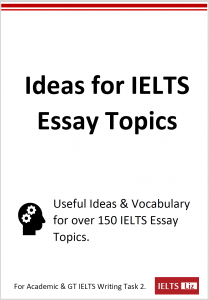Below is a list of vocabulary relating to the topic of “Government”. This word list will help refresh your memory and also expand your range to learn new words. Although the topic of politics doesn’t appear in IELTS, questions relating to general government policies do appear frequently in both IELTS Writing and IELTS Speaking.
On this page, you will find:
- Word Forms
- Synonyms and Types of Government
- Useful Government Vocabulary
- IELTS Speaking Questions & Model Answers
- IELTS Writing Task 2 Essay Questions
1. Word Forms:
- government (n)
- to govern (vb)
- governmental (adj)
Common Errors
There are two common errors when using the word “government”.
- “n” – don’t forget the spelling – goverNment.
- article “the” – when we refer to the government, we usually use the article “the”.
- For example:
- Wrong = Many people think government should improve the infrastructure in rural areas.
- Correct = Many people think the government should improve the infrastructure in rural areas.
2. Synonyms & Types of Government
Below is a useful word list for synonyms. However, please note that is fine to repeat the word “government” in your essay even for high band score candidates.
- the political system
- the administration
- the central government
- the local government
- the authorities
- the people in authority
- the leadership
- those in power
Note, as with all synonyms, they cannot all be used in the same context in the same way. They do differ.
Types of Government and Governing
Below are words relating to types of government and the way countries are run.
- republic = a country with no monarch and has an elected leader, usually a president
- democracy = the government is elected by the people, each person has a single vote
- autonomy = a self-governing country or region
- dictatorship = a country ruled by one person who has not been elected and uses force to keep control
- totalitarian state = a country with only one political power and people are forced to do what the government tells them
- regime = an authoritarian government
- capitalist = a free-market country
- communist = a political and economic system with a classless society where business, factories, farms etc are publicly owned
- monarchy = a country has a king or queen – in traditional monarchies, the monarch has absolute power but in a a constitutional monarchy (such as the UK), there is a democratic government, and the monarch is largely symbolic and politically neutral
- anarchy = a situation where there is no government
- constitutional government = a government which is limited in its power by a constitution
- coalition government = with no direct winner after elections, a government can be formed in which two or more parties cooperate
3. Useful Government Vocabulary
Within a Government
- politicians = people who hold an office within politics
- branches of government- legislative, executive and judicial
- executive branch = this is the part of the government which carries out the law
- legislative branch = this part of the government makes the laws and raises money to run the government
- judicial branch = this part of the government decides laws and settles disputes
- state government = a local government within a particular region or area of a country
- enforcement agencies = bodies within a government which can enforce the law, for example, the police
- political party = a group of people with similar political aims that hopes to have a member elected to government
- diplomats = people who represent their country in communication with other countries
Useful Government Vocabulary
- to pass a law / to enable a law / to bring in a new law = to have a law accepted
- to abide by a law = to follow a law without breaking it
- to elect = to choose
- to have political influence / political power = the extent of a group’s or person’s ability to change the way political decisions are made
- a citizen = a person living within a country
- election = the process of voting for someone to come into power or into a role
- laws = rules for governing a country
- liberty = freedom
- maintain order = providing organisation and safety for the people of a country
- rights = freedoms which are protected and should be guaranteed
- taxes = money paid by citizens to run and maintain a country
- raise / lower taxes – to increase or decrease the money paid by citizens to the government
- budget = money that is allocated to spend in a particular area
- to increase the budget on X = to give more money to X
- defence spending = the money that the government spends on the defence of its country
- note that the word “defence” can also be spelled as “defense” in American English
- policies = action proposed by an organisation
- charismatic = a characteristic that attracts and appeals to other people – many successful politicians are charismatic
- long term / short term goals
- to be proactive = doing something rather than just waiting for something to happen
Citizen’s Actions
- campaign for something
- demonstrations
- to be involved in protests
- organise a petition
- speak at public meetings
- put up posters
- organise a public meeting
- write to politicians
4. Government Topic Questions for IELTS Speaking
IELTS Speaking doesn’t have one single topic called “the Government”. But most topics in IELTS Speaking, do contain questions that relate to how official organisations, such as the government, can improve aspects of life. Below are some examples of questions with model answers. Most of these questions are more likely to appear in Speaking part 3 which deals with broader issues.
- Q) What is the role of a government?
- A) A government is responsible to decide how a country is run and for managing how it is run. It rules and governs a body of people to make sure that those people abide by laws.
- Q) Do you think the government should be responsible for public health?
- A) While the government should be proactive in opening more exercises facilities for the public and to raise awareness of public health, I think it is ultimately the role of the individual to improve their own health.
- Q) Do you think the government should pay to support the Arts?
- A) Yes, in a way. I think the government should definitely provide some support for the Arts as a way to promote our cultural heritage. For example, local people can learn about their own culture from watching the dramatic arts and also from paintings and sculptures. This is also a huge draw for visiting tourists who wish to experience local culture. However, I do think that artists also need to be responsible for ensuring their own income and not just rely on the government.
- Q) What do you think the government could do to protect natural beauty spots in your country?
- A) Well, I suppose one of the key things that those in power could do is to establish stricter laws to ensure people treat places of natural beauty with respect. For example, littering is a huge problem in my country and this needs to be taken more seriously. Another thing is for the government to spend more money on conservation as well as raising awareness among the local population of the importance of these places.
5. IELTS Writing Task 2 Essay Questions Samples
- Many people think people should pay for their education, while others think the government should fund all education. Discuss both sides and give your opinion.
- Some people believe the government should be responsible for the homeless and that society is not responsible. Do you agree?
- Do you think artists should have the right to express any opinion through their work or do you think the government should censor their work?
- Do you think the government should focus on supporting science or the Arts?
- Do you think the government should be solely responsible for public safety or do you think individuals should also be held responsible for their own safety?
- Some people believe that the government should spend more money on protecting wildlife. Do you agree or disagree?
- Some people think that the government is wasting essential funds on space research and that these funds would be better allocated to health care. To what extend do you agree?
Tip: Don’t suggest in your essay that the government could introduce a particular law if there is already one in place. If you know a law is already in place, then you can suggest that the law serves harsher punishments and give examples of that. Try to keep your essay real. Think your ideas through and be sincere in your essay for a high score.
Recommended
- More Government Essay Questions
- 100 IELTS Essay Questions
- ALL IELTS SPEAKING LESSONS & TIPS
- ALL IELTS WRITING TASK 2 LESSONS & TIPS
- ALL IELTS VOCABULARY LESSONS
……………………………………….
Free Subscribe to get New Posts by Email








